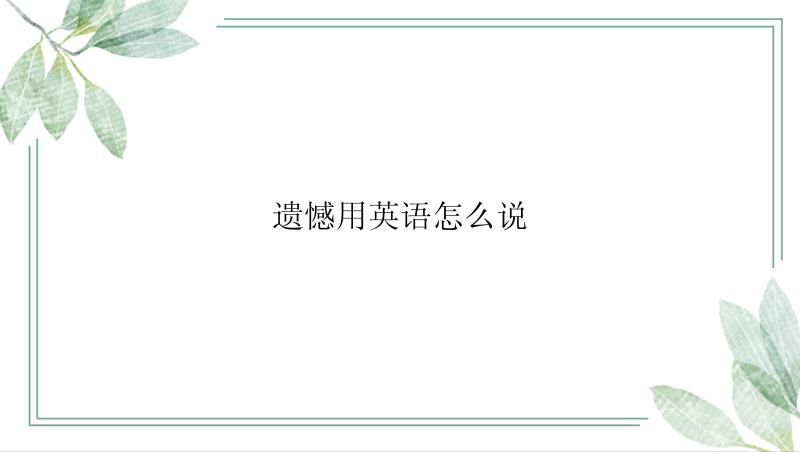
1. Unfortunately, there are many different ways to express the feeling of "遗憾" in English. One of the most common phrases used is "unfortunately". This is a simple word that can be used to express a sense of regret or disappointment over a missed opportunity or an unfortunate event.
2. Another phrase commonly used to express "遗憾" is "what a pity". This phrase is often used in more casual settings to express a sense of disappointment or regret, particularly when something bad or unfortunate has happened to someone.
3. Similarly, the phrase "that's too bad" can also be used to express a sense of disappointment or regret. This is a slightly more formal phrase than "what a pity", and is often used in more professional or serious contexts.
4. In some situations, the phrase "I'm sorry" can also be used to express a sense of regret or disappointment. This is particularly true when someone has been hurt or disappointed by something you have done or said.
5. Finally, when you want to express a more formal and serious sense of regret or apology, the phrase "I regret to inform you" can be used. This phrase is often used in business or professional settings to convey a sense of serious regret and apology.
6. In conclusion, while there are many different ways to express "遗憾" in English, the phrases "unfortunately", "what a pity", "that's too bad", "I'm sorry", and "I regret to inform you" are all commonly used to convey a sense of regret or disappointment. The choice of which phrase to use will depend on the specific situation and the level of formality required.






